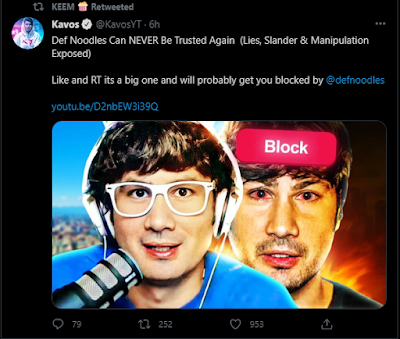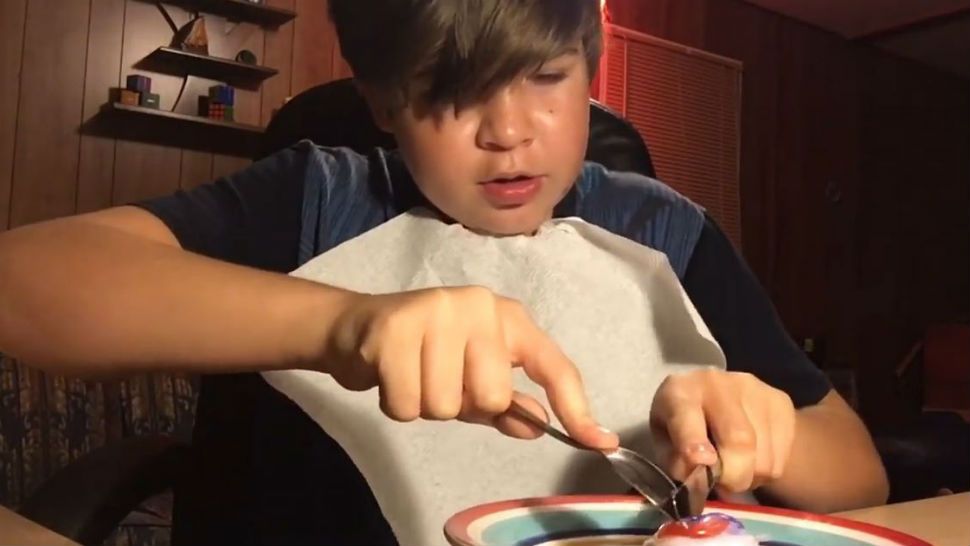Yes. Saved you from reading the rest of this article I suppose. But for real though, let's dive a bit deeper into this and really think about what kind of drama circulates on social media. We already know how polarized the posts and comments can be from political conversations on the internet and those typically just end up with people being spiteful rather than productive. While this certainly has been amplified by social media, being cutthroat about your political beliefs is not exactly new. So what else trends drama-wise? Influencers. Cancel culture and accountability culture seem to have increased influencer popularity, but of course, this kind of publicity is usually harmful to the influencer's careers rather than actually boosting their career.
More of a personal note than anything, but I think accountability culture is good as it makes people take responsibility for their past actions, but also does not go to the extreme ends of trying to delete a person off the platform if they have grown past it. Don't get me wrong, there are cancelable topics that we should not tolerate whatsoever, but there are also ways that people can grow as a person from their past mistakes. The internet is not as forgiving it seems and unless you have been a perfect human being all your life, someone will find something in your past to cancel you if you are an influencer on social media. We might not always recognize the impact of our digital footprint, but the content that you post to your social media can at any given moment come to haunt you should someone actively want to find something against you, especially if you are an influencer where people have access to a plethora of Tweets and other posts. I mention Tweets specifically because it seems as though Twitter has turned into the platform to specifically deal with this type of drama against influencers. As the Reddit user, u/tehsmittenkitten comments in the subreddit r/nosurf, "I deleted it [Twitter] months ago and never felt better. I would wake up and see something on there that would upset and it ruined my whole day. That’s when I realized I needed to change. Twitter is toxic because it’s much harder to control your feed compared to Reddit and Instagram (which is also toxic). It also feeds off drama because that’s what gets you 'clout'. I will never go back to Twitter even if it was funny at times, the bad just out weighs the good. Not to mention what a time consumer it was!"
We can see that drama, specifically from influencers, tends to trend the most on platforms on Twitter and it seems as though there are subgroups forming from this weird trend. People who defend and "stan" the influencer in question, the people who dislike the influencer and want them off the platform, people who cover the drama, and people who are actively annoyed by this and want nothing to do with the drama. The internet drama will circulate regardless on social media though and there truly is no way of avoiding it entirely. However, Twitter does seem to host more of this dramatic content and other influencers will usually highlight this drama and talk about it as if it were news (hello Keemstar) or in podcast-style (hello H3H3) or even a simple Twitter post and comment reading (hello Bowblax). Influencer drama, in a basic sense, can be broken down as follows: Two budding parties fight on a platform on Twitter, people join in on the conversation to make it trending, a "drama" channel covers their fight, more people join in and thus make the drama trending even more than it was before,, some sort of resolution/stalemate occurs while people who were not active in the conversation get annoyed at petty influencer drama.
Accusations and hate spread like wildfire it seems when it comes to influencers and drama. The strange phenomenon that occurs is that this drama, as harsh and publicly as it was in the beginning, seems to have a short lifespan... until it doesn't. Let me clarify that for a bit by comparing two drama scenarios from the Bowblax channel. The fight between Trisha Paytas and Nikita Dragun lasted approximately 7 hours on Twitter and then it sort of fizzled out. That's not to say that it is not still being talked about here and there, but the majority of the conversation happened during that time frame and then it seemed to almost abruptly stop. The James Charles one however seems to have an exponential rate of being talked about as now news outlets and bigger media channels are talking about the situation more than ever. This is what I meant by most of the drama seems to have a short lifespan until it doesn't for bigger controversies and influencers like James Charles.
Whatever your take might be on Influencer drama, you cannot deny that these stories do trend on platforms like Twitter and YouTube. There are many people who thrive on this content and many who are annoyed and have actually stayed off Twitter to avoid it. One thing is for certain, as long as influencers exist, the drama will seem to follow them in some shape or form and it is not going away. Better to delete all social media while you still can before you get sucked into the drama and question what you are doing with your life as you mindlessly scroll through subtweets based off of influencer drama.





